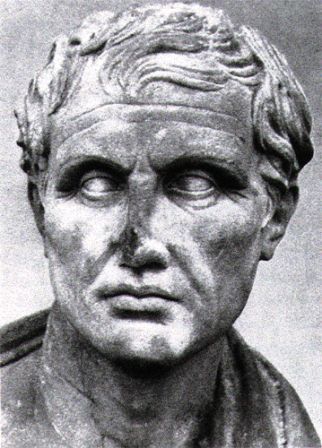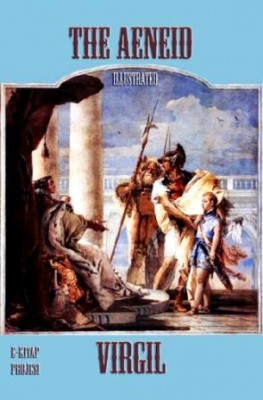More Search Results...

Publius Vergilius Maro (70 BC – 19 BC), usually called Virgil or Vergil /ˈvɜrdʒəl/ in English, was an ancient Roman poet of the Augustan period. He is known for three major works of Latin literature, the Eclogues (or Bucolics), the Georgics, and the epic Aeneid. A number of minor poems, collected in the Appendix Vergiliana, are sometimes attributed to him.
Virgil is traditionally ranked as one of Rome’s greatest poets. His Aeneid has been considered the national epic of ancient Rome from the time of its composition to the present day. Modeled after Homer’s Iliad and Odyssey, the Aeneid follows the Trojan refugee Aeneas as he struggles to fulfill his destiny and arrive on the shores of Italy—in Roman mythology the founding act of Rome. Virgil’s work has had wide and deep influence on Western literature, most notably the Divine Comedy of Dante, in which Virgil appears as Dante’s guide through hell and purgatory.
Birth and biographical tradition:
Virgil’s biographical tradition is thought to depend on a lost biography by Varius, Virgil’s editor, which was incorporated into the biography by Suetonius and the commentaries of Servius and Donatus, the two great commentators on Virgil’s poetry. Although the commentaries no doubt record much factual information about Virgil, some of their evidence can be shown to rely on inferences made from his poetry and allegorizing; thus, Virgil’s biographical tradition remains problematic.
The tradition holds that Virgil was born in the village of Andes, near Mantua in Cisalpine Gaul. Scholars suggest Etruscan, Umbrian or even Celtic descent by examining the linguistic or ethnic markers of the region. Analysis of his name has led to beliefs that he descended from earlier Roman colonists. Modern speculation ultimately is not supported by narrative evidence either from his own writings or his later biographers. Macrobius says that Virgil’s father was of a humble background; however, scholars generally believe that Virgil was from an equestrian landowning family which could afford to give him an education. He attended schools in Cremona, Mediolanum, Rome and Naples. After considering briefly a career in rhetoric and law, the young Virgil turned his talents to poetry.
The Aeneid
The Aeneid is widely considered Virgil's finest work and one of the most important poems in the history of western literature. Virgil worked on the Aeneid during the last eleven years of his life (29–19 BC), commissioned, according to Propertius, by Augustus. The epic poem consists of 12 books in dactylic hexameter verse which describe the journey of Aeneas, a warrior fleeing the sack of Troy, to Italy, his battle with the Italian prince Turnus, and the foundation of a city from which Rome would emerge. TheAeneid's first six books describe the journey of Aeneas from Troy to Rome. Virgil made use of several models in the composition of his epic; Homer the preeminent classical epicist is everywhere present, but Virgil also makes especial use of the Latin poet Ennius and the Hellenistic poet Apollonius of Rhodes among the various other writers to which he alludes. Although the Aeneid casts itself firmly into the epic mode, it often seeks to expand the genre by including elements of other genres such as tragedy and aetiological poetry. Ancient commentators noted that Virgil seems to divide the Aeneid into two sections based on the poetry of Homer; the first six books were viewed as employing the Odyssey as a model while the last six were connected to the Iliad.
More info →
































